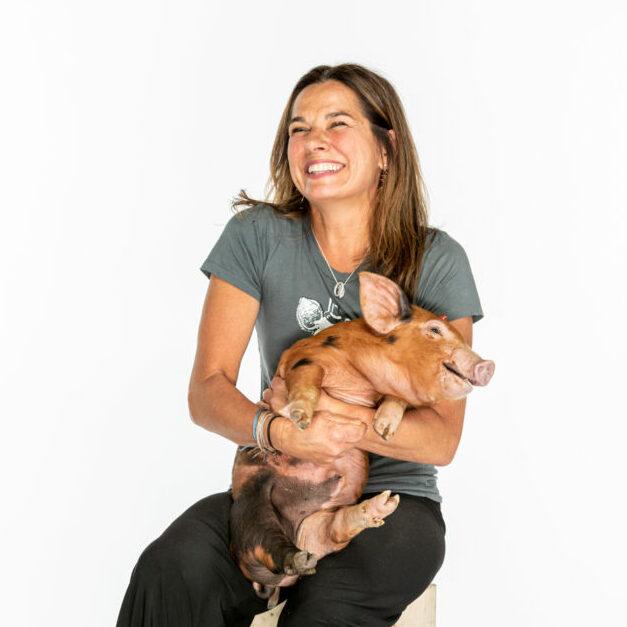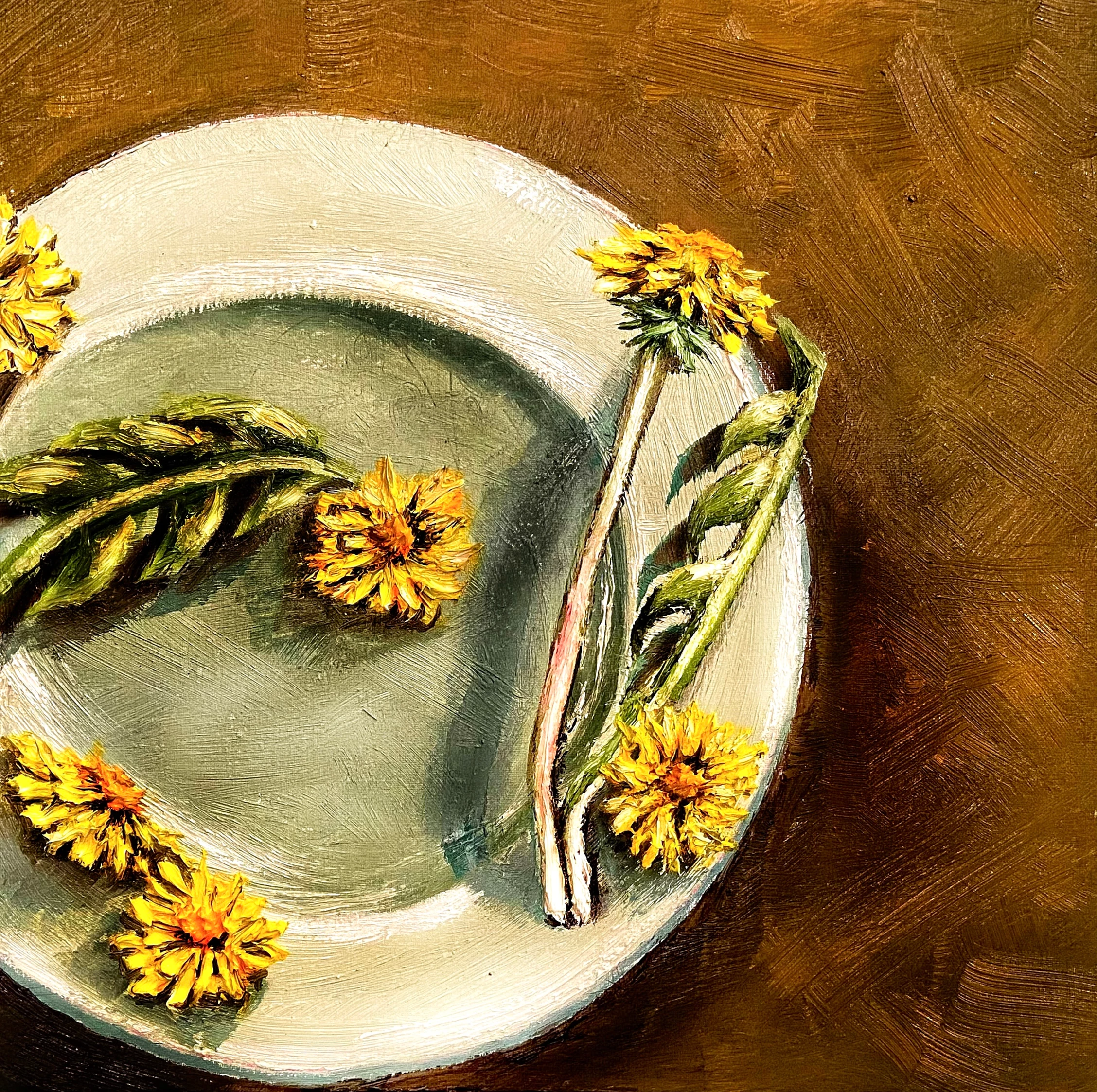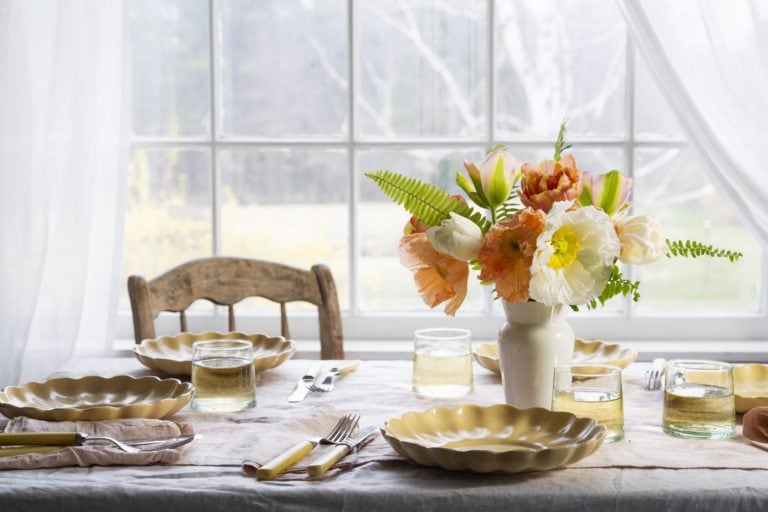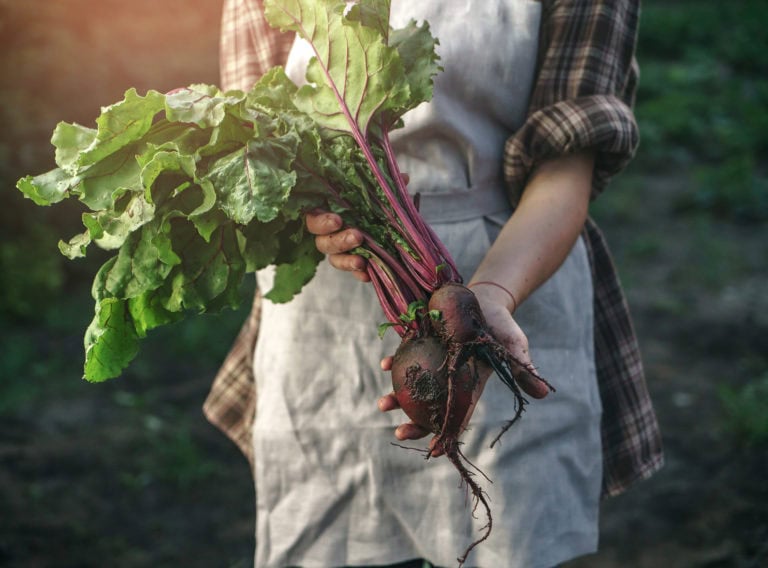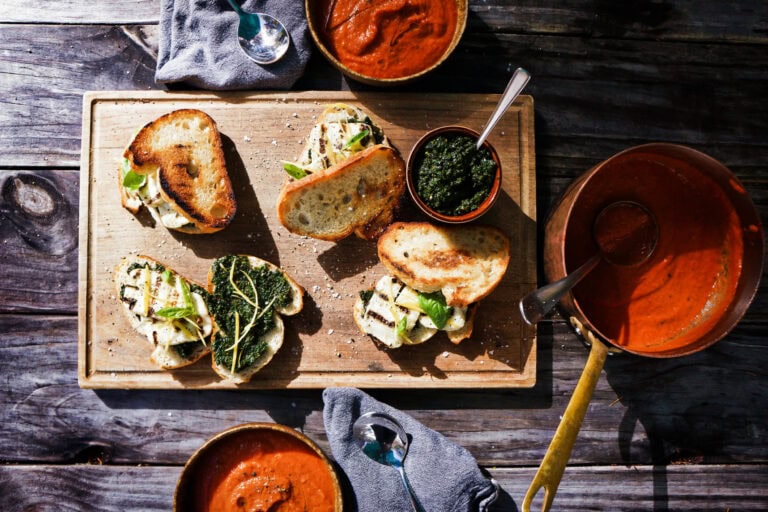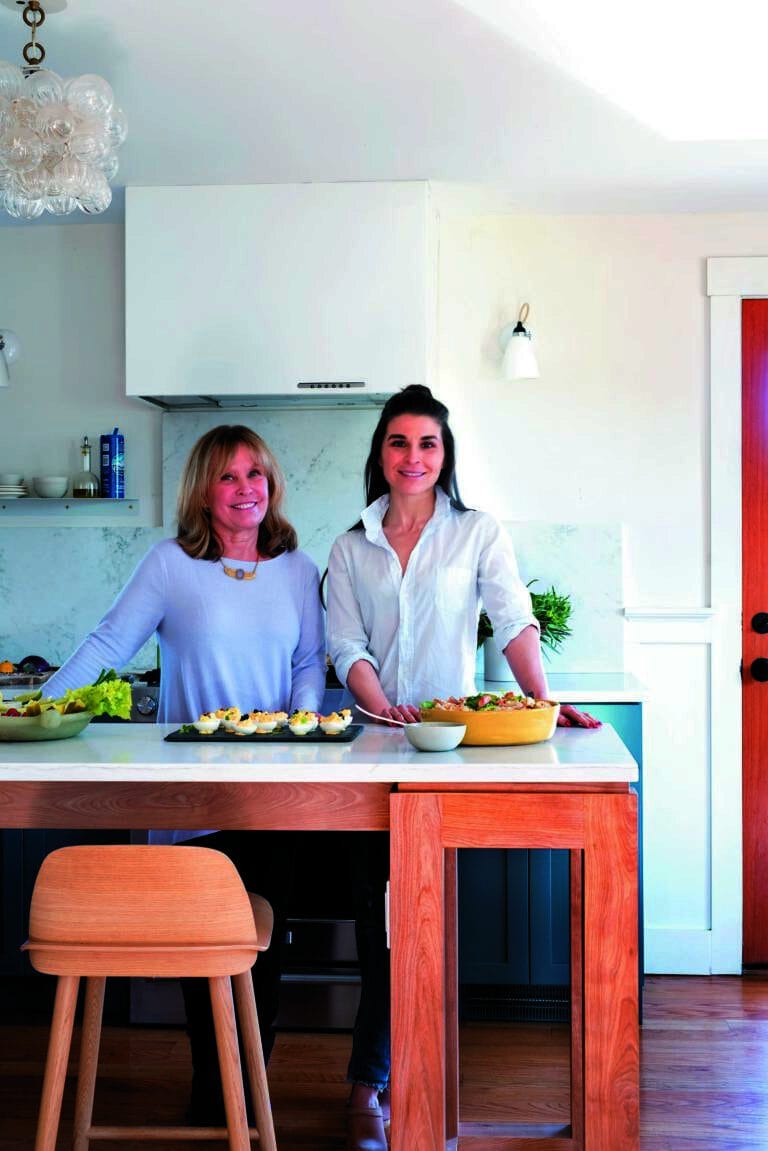When Primo opened in Rockland in 2000, foodies across Maine raised their eyebrows. Why was a nationally acclaimed chef taking such a chance on what was essentially a Midcoast ghost town? The risk was worth it, as Primo quickly became a beloved culinary staple for locals and visitors alike. Proprietor and Executive Chef Melissa Kelly cultivated Primo with an ethos that went all-in on hyperlocal food, a concept that wasn’t revered like it is today. Two decades later, Primo boasts its own edible ecosystem with acres of gardens, greenhouses, pigs, chickens, and ducks, plus the creativity to support an ever-changing menu. Editor-in-Chief Maggie Knowles sat down with Chef Kelly to reminisce on the evolution of Primo and celebrate what’s ahead as they open for their 25th season.
This conversation has been edited for length and flow.
Listen to the Maine Course podcast episode for the full conversation with Chef Melissa Kelly of Primo HERE.
Are you an early bird or a night owl?
Both? As I get older, I’m kind of both of those things.
I don’t think chefs ever get to sleep. And in your many waking hours, you are responsible for one of Maine’s great restaurants, Primo in Rockland. But you are not from here and you have worked all over the country. What drew you to open on the Midcoast?
Two places were appealing—Midcoast Maine and Montana. At the time, Rockland was a ghost town. There were a lot of defunct businesses on Main Street. And I’m like, “I don’t know if this is going to work here.” And we looked around at properties and eventually found Primo, and it had land, which was super exciting to me. I really wanted to have a farm. It was really overgrown and kind of scary and daunting, but we took the plunge.
Did you have farming and gardening experience when you decided to open Primo?
I grew up in a very Italian American family on Long Island, New York but we always had a garden. I grew my first crops on a tiny strip of land. Larry Forgione was the biggest mentor in my career, and he was a pioneer of supporting small farms.
Primo has been open for 24 years. If we look at the ups and downs in this industry, how have you lasted for so long while still being one of the “go-to” restaurants in Maine?
We close for four months each year and reopen in May. We did that initially because the winter is brutal and everyone’s hunkered down by 7. But now that time off gives me time to hibernate and also think about how to reinvent, stay current, how to be focused, how to realign.
When you started Primo’s “farm-to-table, full-circle kitchen” concept focusing on low waste and sustainability, it was a groundbreaking ethos for the state.
It’s funny because it’s not groundbreaking—it’s old school. It’s the way it should be and the way that people used to live. We are lucky to have many farms in Maine, so much wild food, so many farmers markets.
Are young chefs coming to you prepared in full-animal butchery, farming, and gardening? Are culinary schools teaching those skills to make their graduates appealing to restaurants like Primo?
That’s a loaded question these days. Twenty years ago, I feel like we got a lot of people with experience, and the last six years, I get a lot of green chefs. They’re totally eager but it’s really starting from ground zero. But this year I’m getting some resumes and we’ve had a few people come and stage who do have some experience.
For those reading who want to pursue culinary arts, do you have an opinion on culinary school, as you did, versus going through an apprenticeship program, which is getting more popular these days?
Culinary school was great for me. However, apprenticing is also a great way to learn, as long as you choose who you want your mentor to be. You don’t have to know your end goal, but what is your focus? If you want to go work with a butcher, go work with the best butcher you can find. If you want to learn vegan or Italian food, just find the best person that you can learn from.
Do you feel like young chefs have the patience for the long game? It feels like the young generation in general—and I can say this; I have two teenagers—they don’t have a lot of patience. Do they understand that you’re not going to become a celebrity chef overnight?
They don’t understand that. We live in a different day with our phones and the access to information that we never had when I was coming through the ranks. We had to read the books, we had to do the studying, and we had to do the repetitious work to learn. However, they can go on YouTube and watch 10 videos in an hour and think they know everything. Watching a YouTube video, you don’t get the muscle memory that comes from doing the repetitious work and working with a chef for so long, and I think it’s really unfortunate for them because it’s very surface, their knowledge.
Traditionally, chefs were expected to work 80-hour weeks, which can strain family life. Coming out of COVID, people got used to working shorter days. Do you foresee chefs being able to work less, or is the expectation still over 60 hours a week?
In my world, that’s still the expectation. I would love to figure out how to crack that code. Also at my age, I don’t want to work that many hours anymore, although I still am and I’m trying to make a healthier kitchen environment for my team. Like you said, the younger generation and after COVID, they’re not used to working those 80-hour weeks. How do we make it sustainable financially and they’re still engaged? It’s tricky. But I’m going to do some research this winter around that.
Those long weeks take a physical and mental toll, leading to hospitality burnout. What are tips you share with your staff to help cope with burnout and to care for their well-being?
You see more burnout these days than ever before. There’s a lot of anxiety. The younger generation gets stressed out, so we give them the space. We have a very familial atmosphere, so if somebody needs space, everyone else will come together and give them that. Connecting with nature is also really important. There’s always calm there.
I was at Crown Jewel’s Fabulous Femmes dinner this past fall where 10 chefs were making dishes along with you. Watching all of you work together, I was truly touched by the comradery, the laughter, the gracefulness in which you supported each other and helped each other plate. Does that speak to the overall culture of women chefs in Maine?
That was my first introduction to several of the ladies that were there. I always found when I did a dinner with a lot of male chefs, it would be like nobody really talked to each other until after your plate went out. Where the women chef dinners, everyone’s like, “Do you need anything? Can I help you? I can pick your herbs,” or whatever. Everyone’s always helping each other.
Looking forward to 2024, what do you want to share that you’re excited about? Are there any new things that guests can look forward to, especially coming for the upcoming season?
2024 is going to be my 25th season, so it’s a major milestone in my career. I want to invite some of my past staff, mentors, and some chef friends to do classes and some dinners and… I feel a lot of celebrations coming on.
